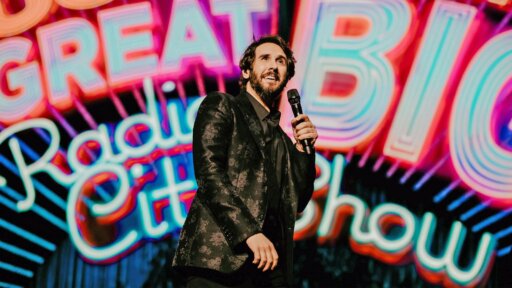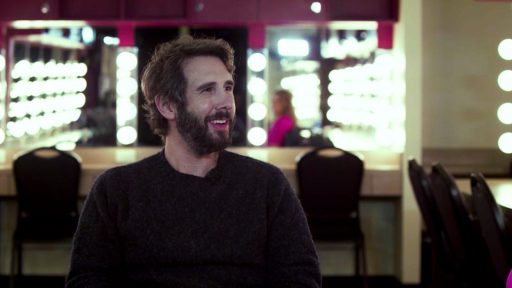Josh Groban speaks on why he thinks singing in choirs is great training for young singers and why he loves singing with other people today.
Features



You know, you've had a choir with you for a lot of this show. Yes.
And I know this is crazy, but I just happen to be reading a study about choirs... Tell me.
I know really well, first of all, they have a larger sense of community, people who sing in choirs, and better general overall health than the public.
I believe it.
Tell me why, why?
Well, I mean, I, I look back very fondly on my time in my choir when I was a kid, and I tell people who are young singers, join a choir. It teaches you about, uh, it teaches you about relative pitch. You have to be, you have to be matching your partner because you can always go out and be, and just be in the spotlight and be a soloist, but you can't always listen sometimes, and it teaches you to listen. Um, it also, it, like you said, it forms a bond. It forms a community.
It's what I love about doing theater as well. But, um, in, in Japan, they call it 'Ikigai,' the sense of community and purpose and vitality.
It's a great word for it.
And I think there is a certain element of Ikigai in choir and being in a choir, you're, you're supporting each other and I think supporting each other, lower stress, and you can express yourself with a group of people. And, uh, you know. Yeah.
So it was fun for you too?
I love being a member of the choir when they come out and sing with me.
Are you kidding? It's my favorite thing.
Whenever we get to do a song where there's a choir that we're all lifting together. Uh, that's, that's my favorite thing. I love with duets too, because we're balancing off of each other and there's that, there's that support. Believe it or not, being a solo, being a soloist is really just the most lonely part of all of this.
Just give me more singers to sing with!
